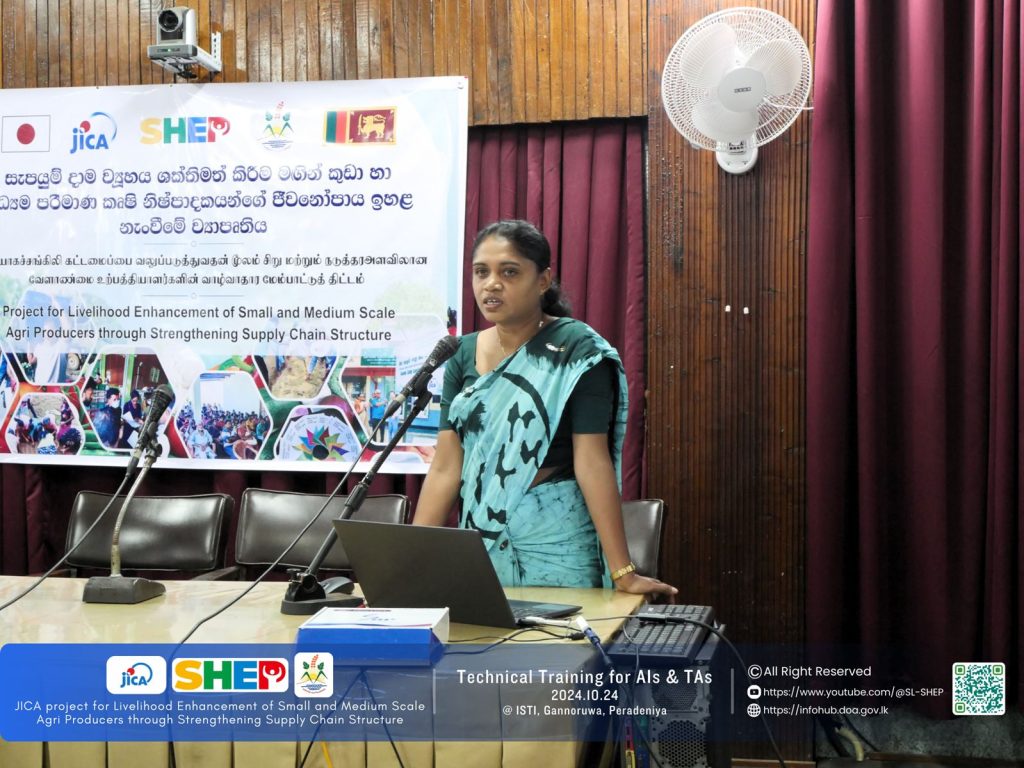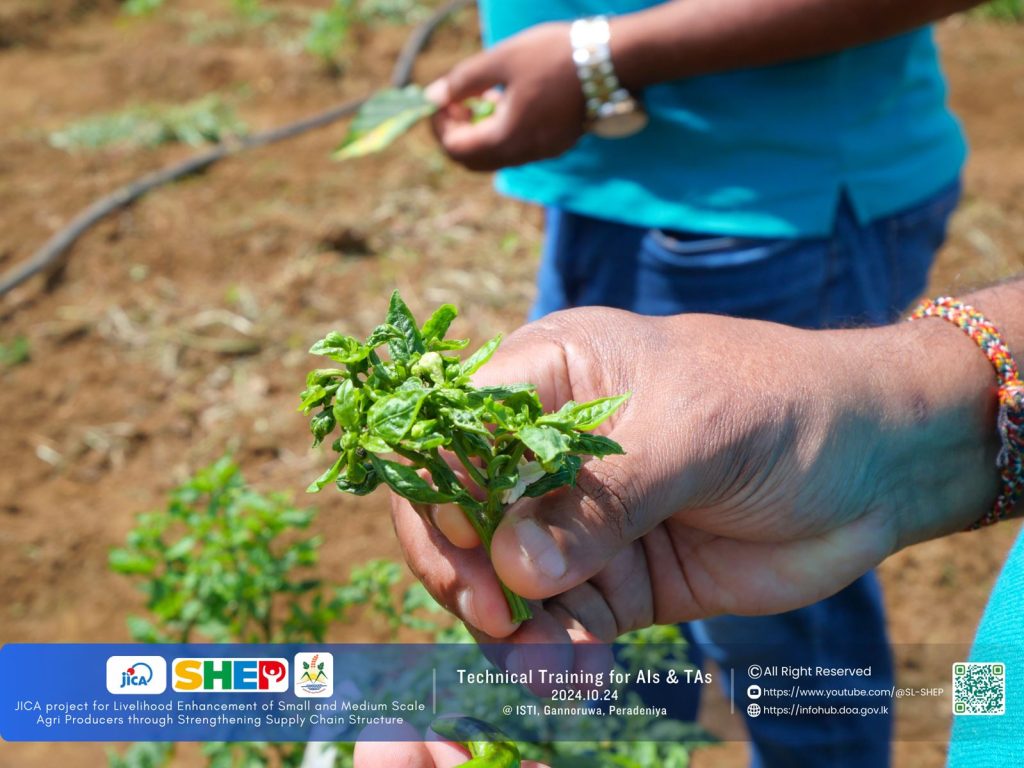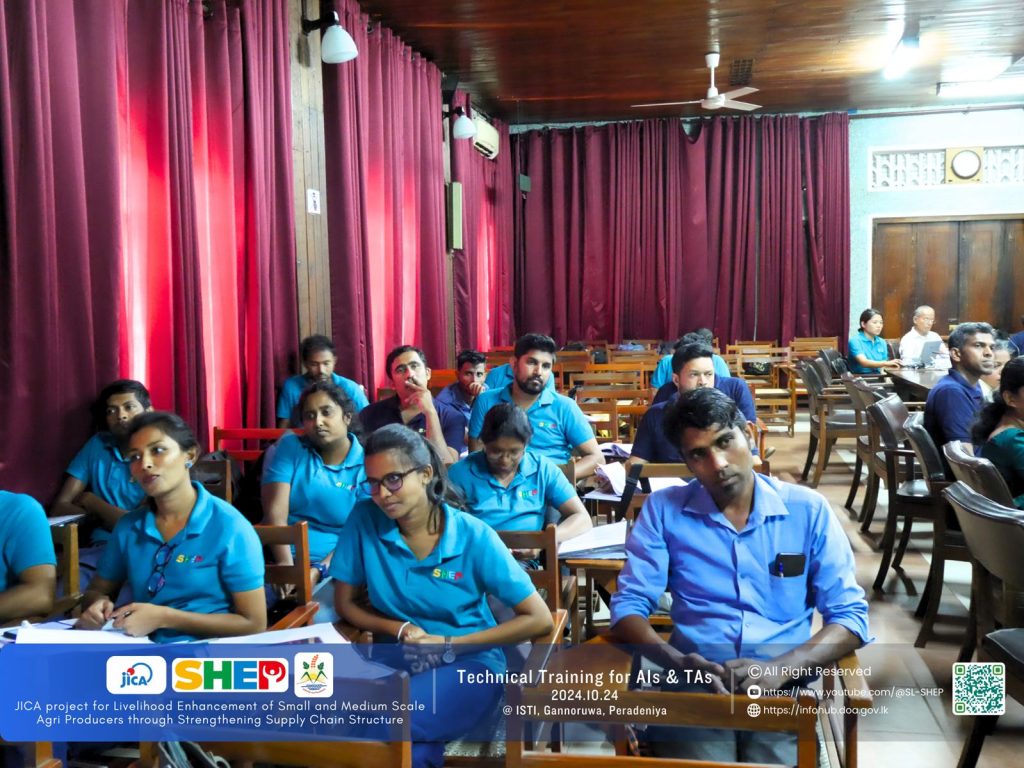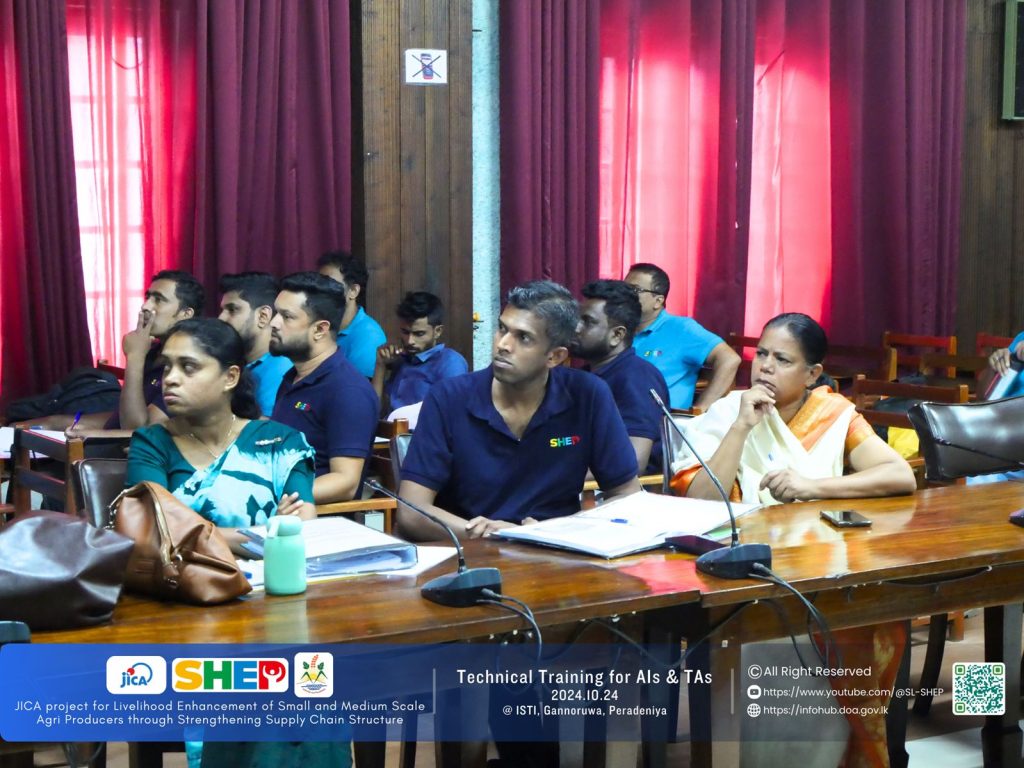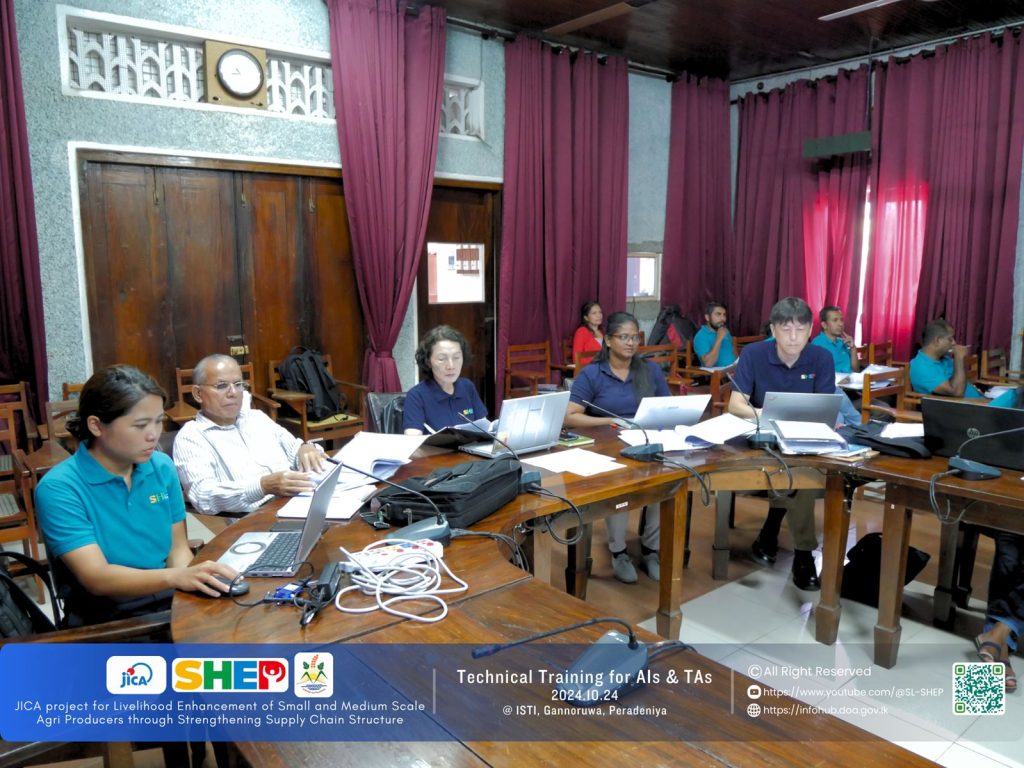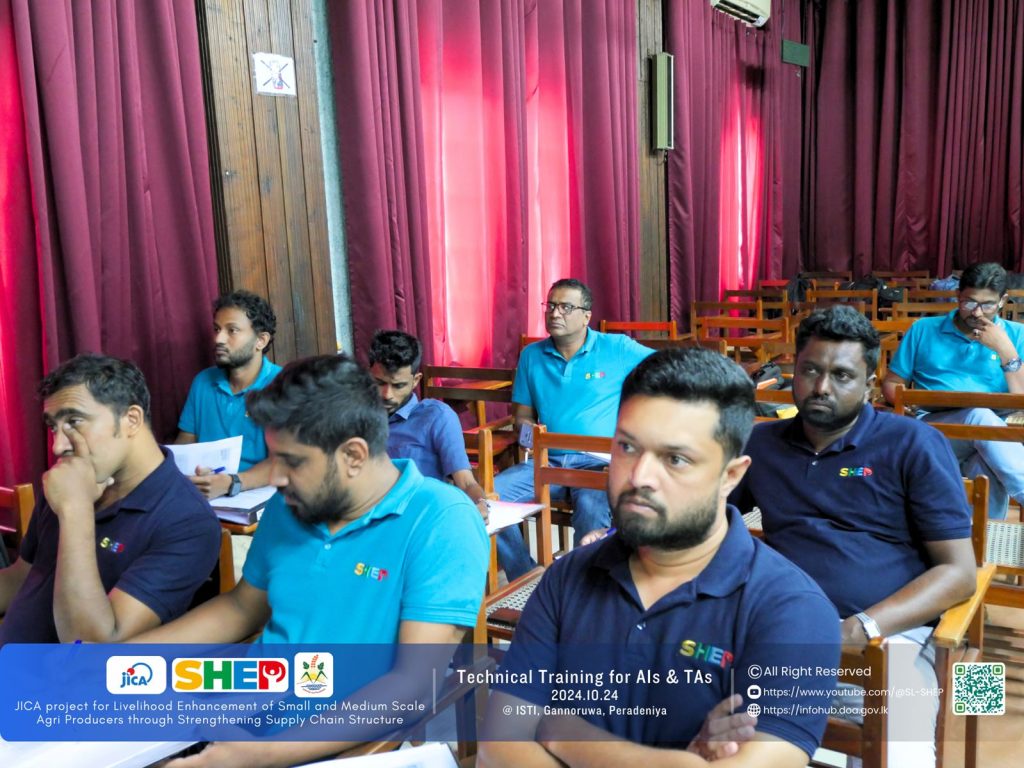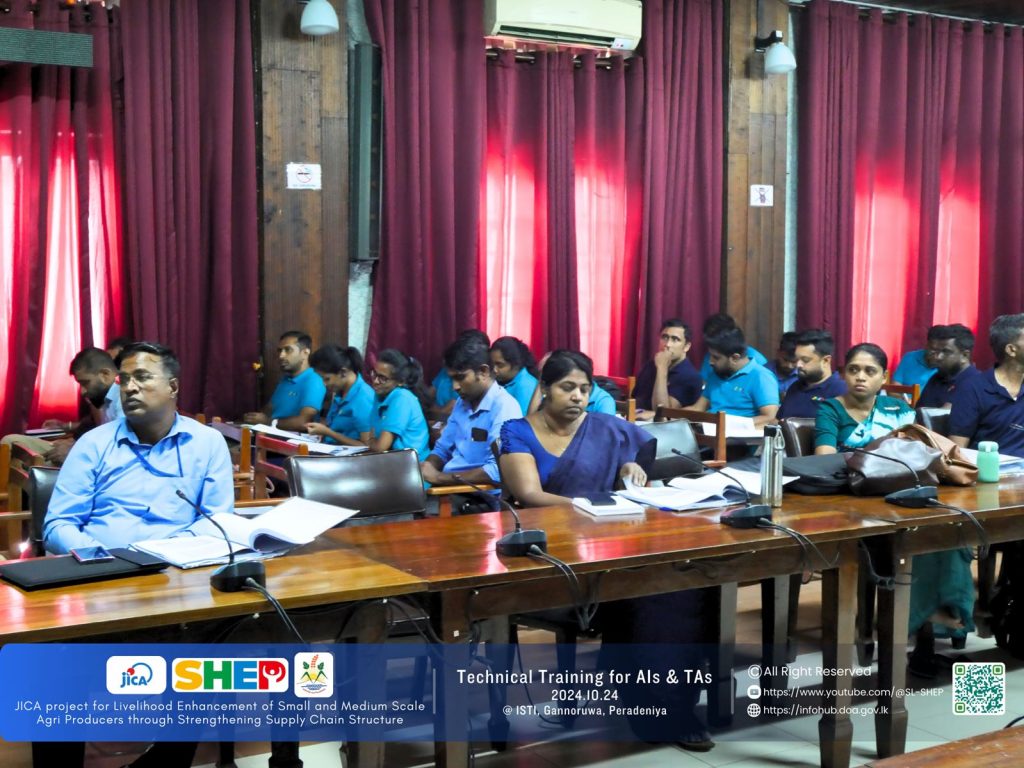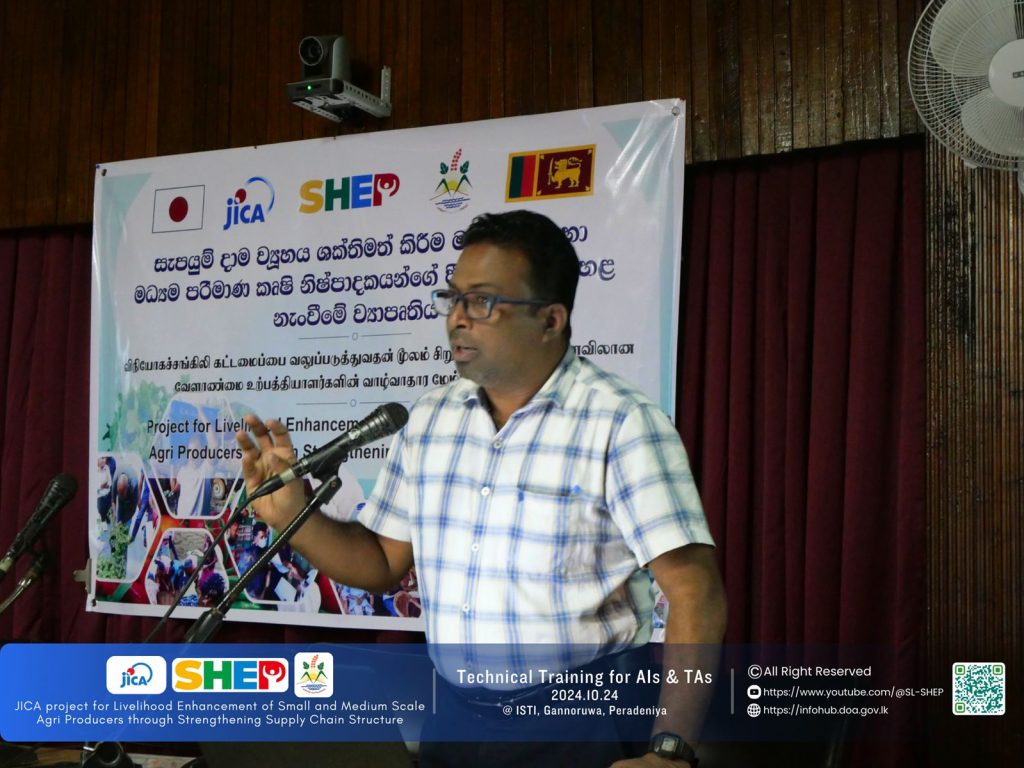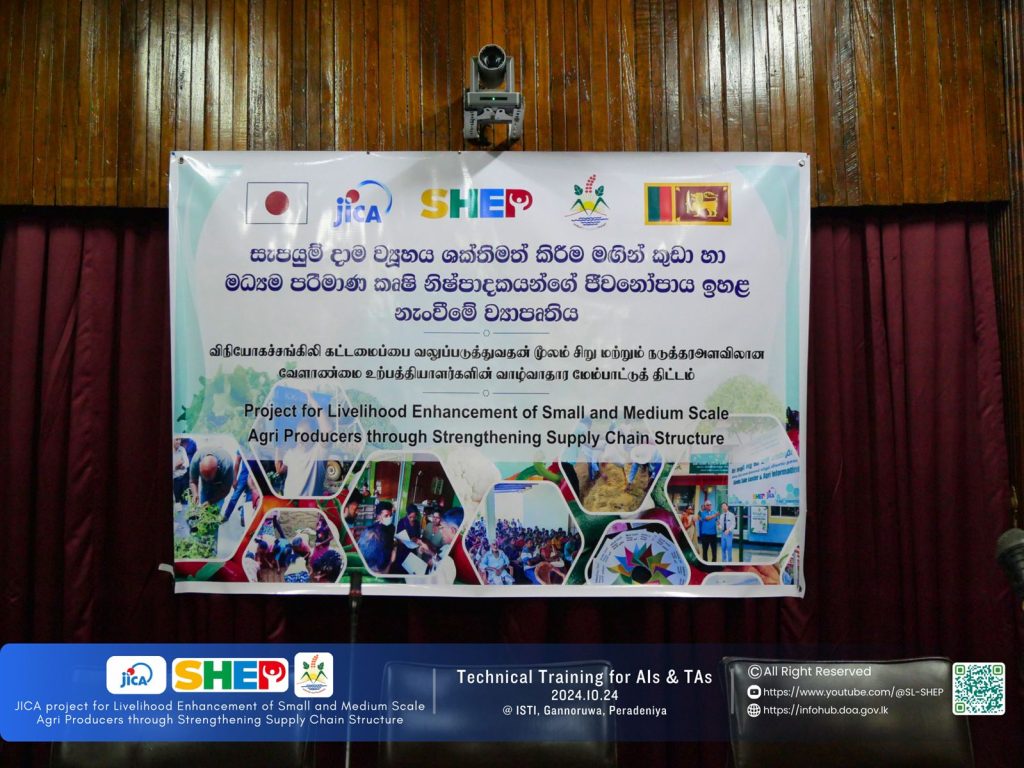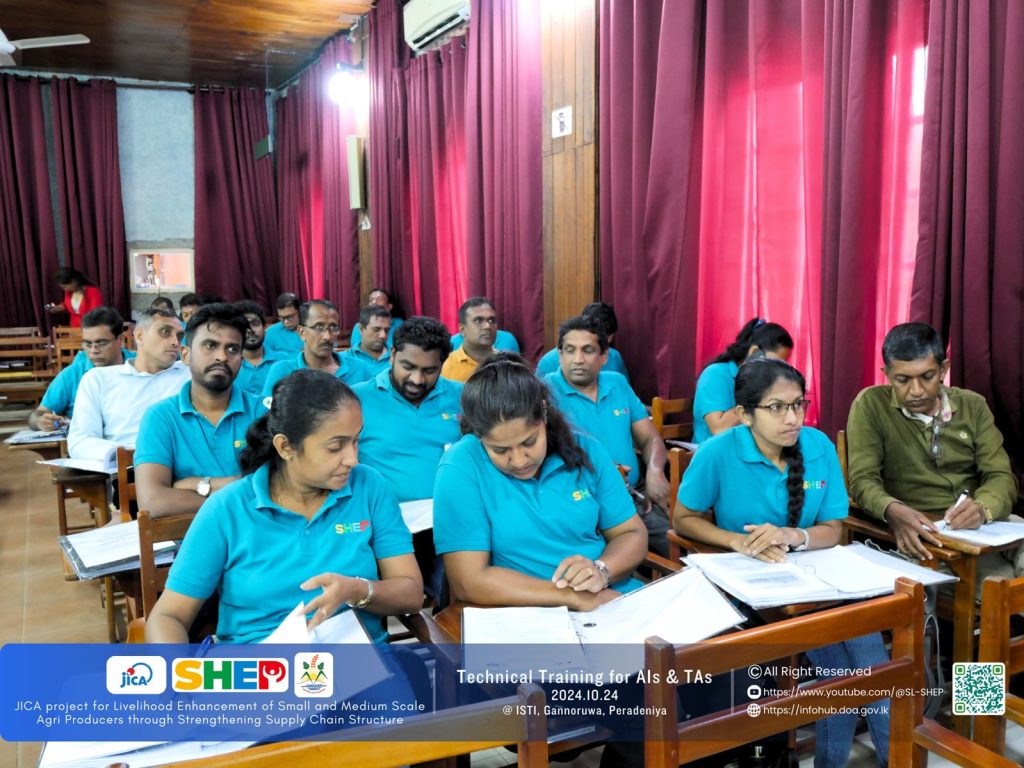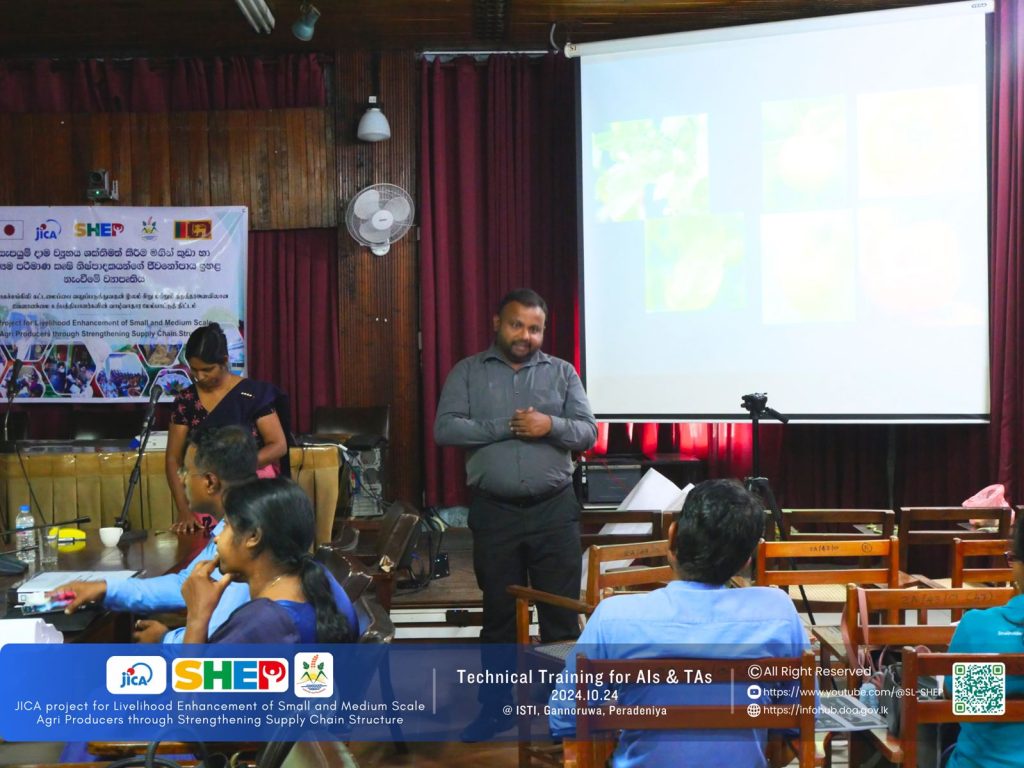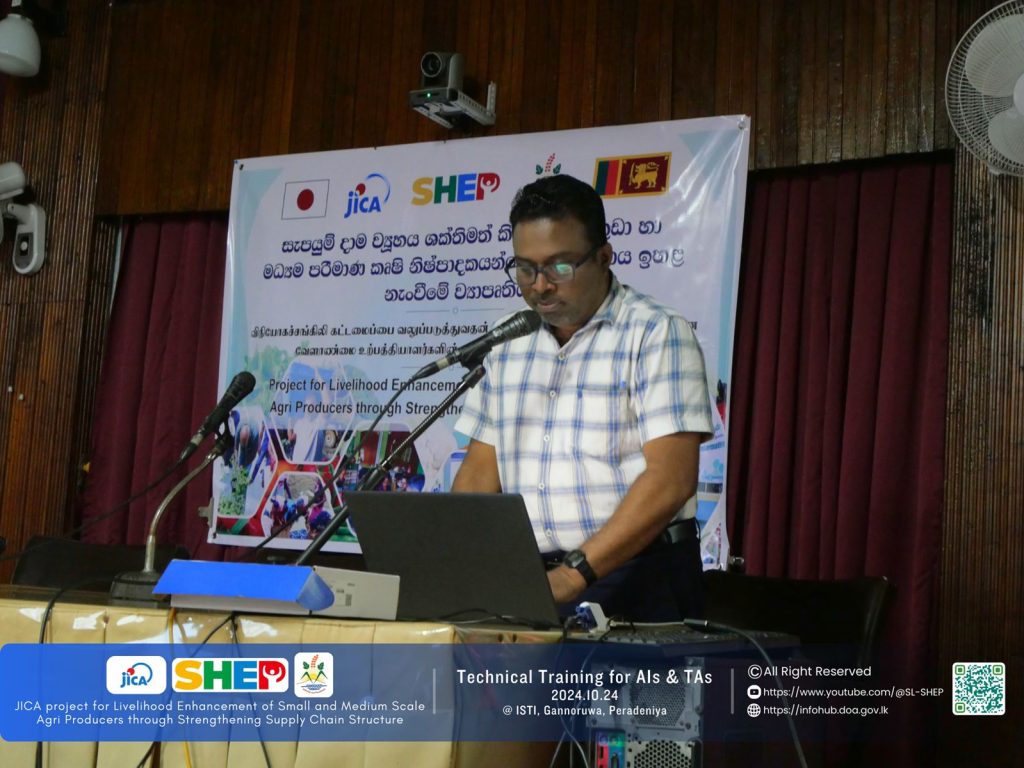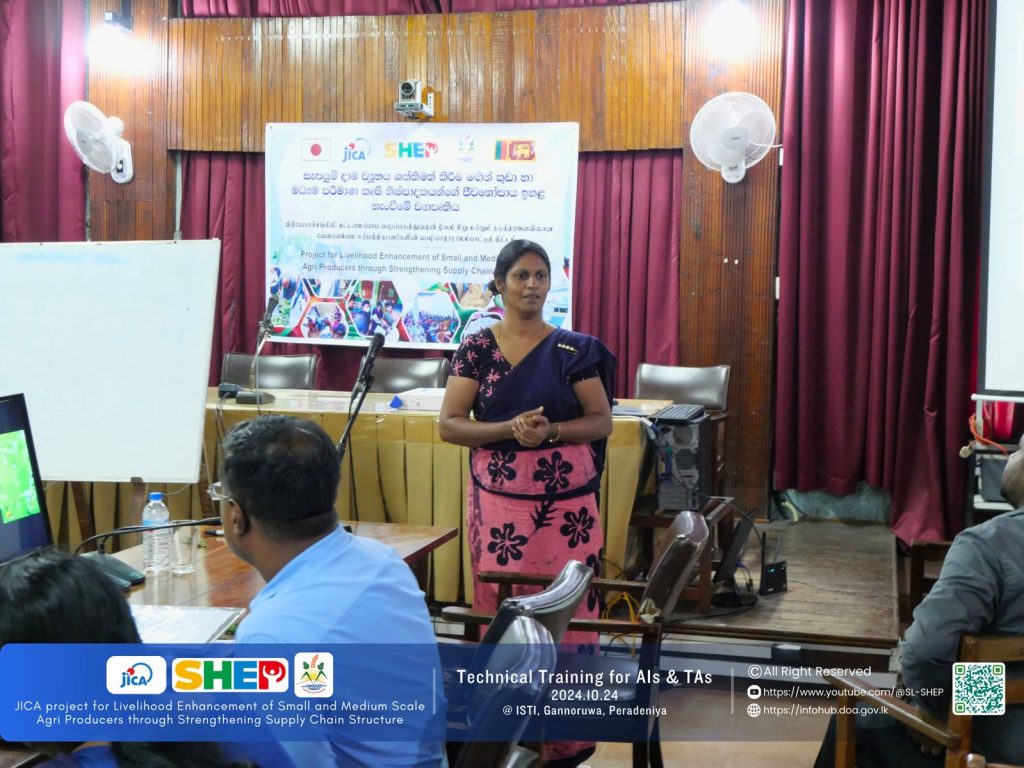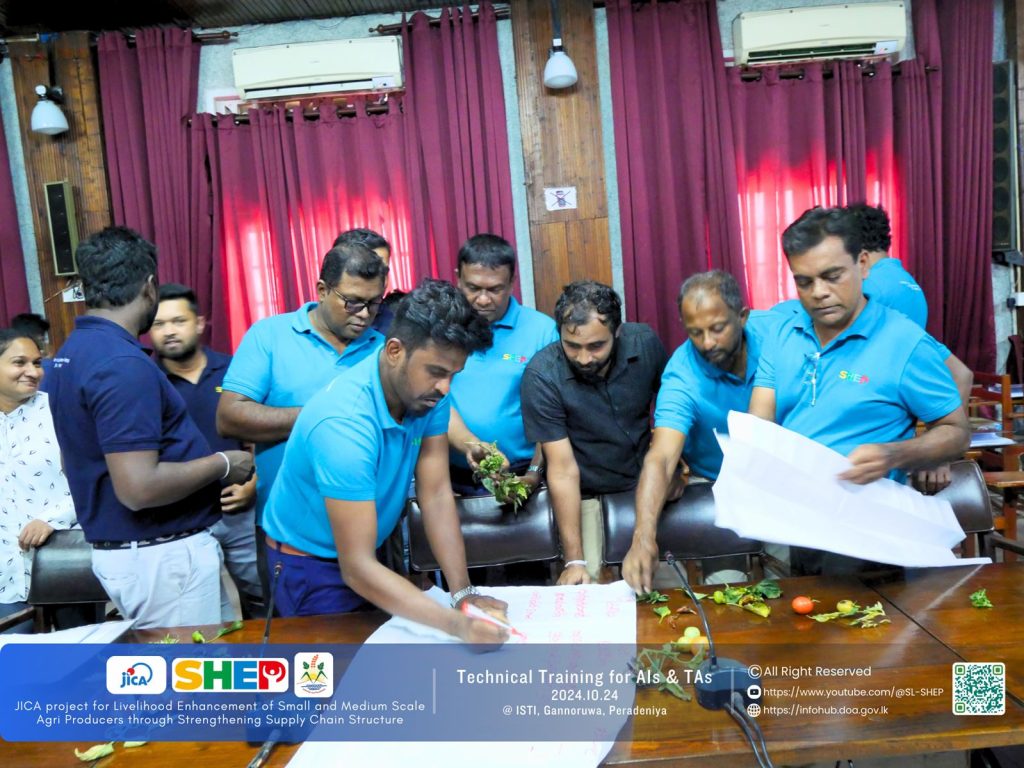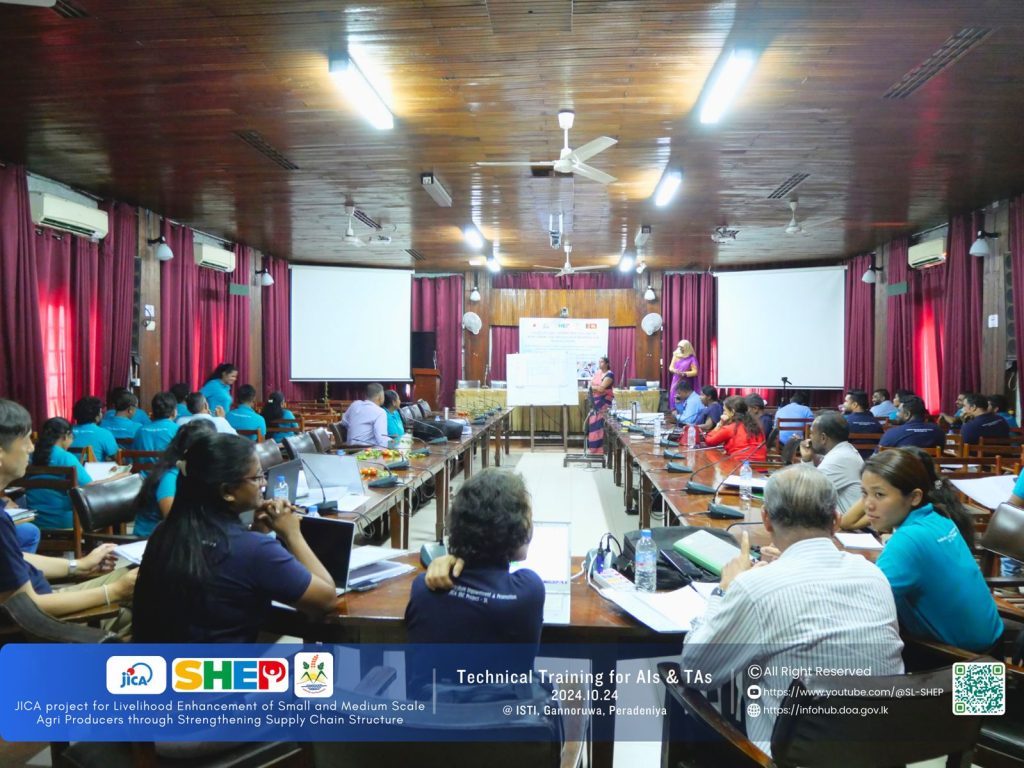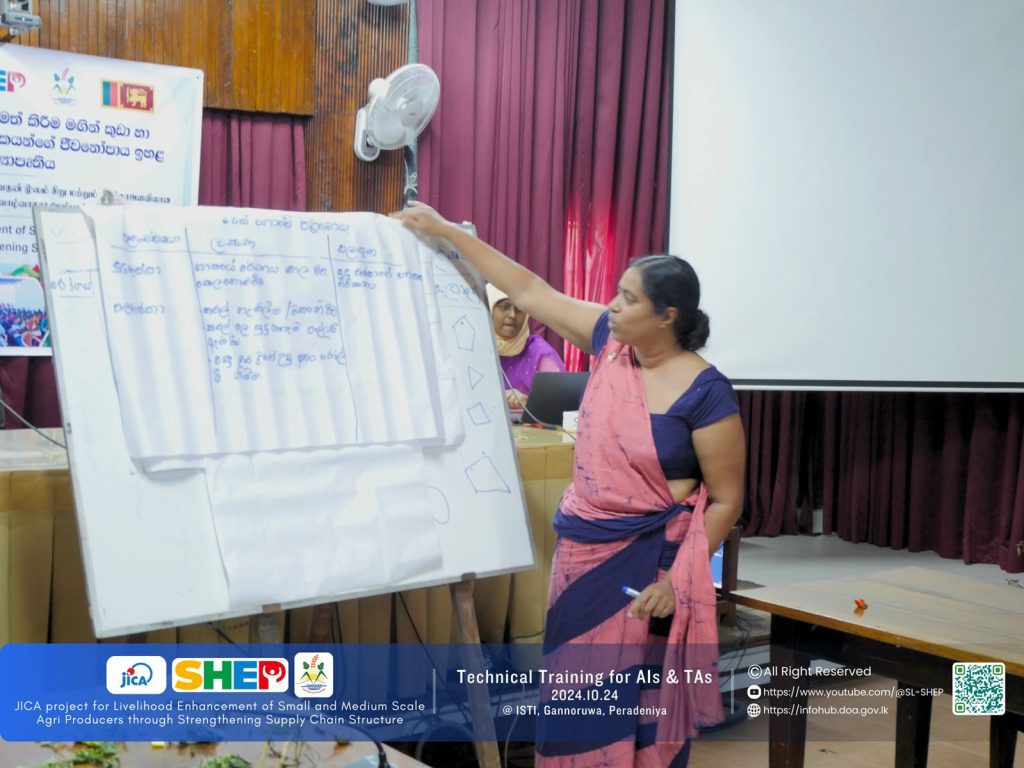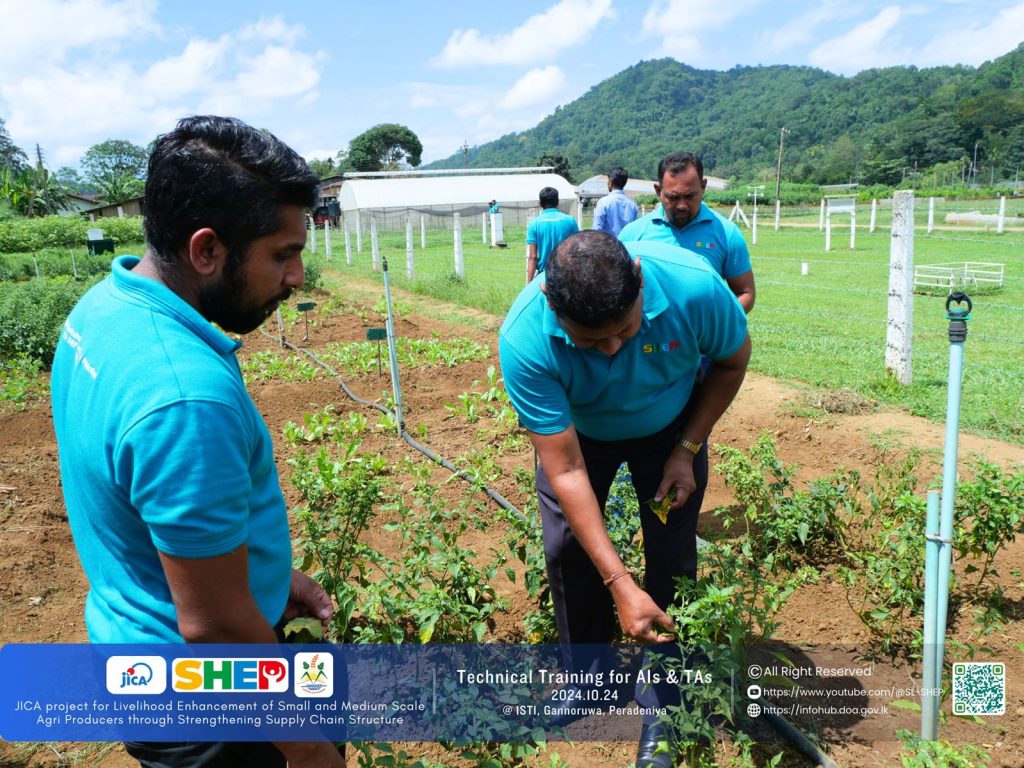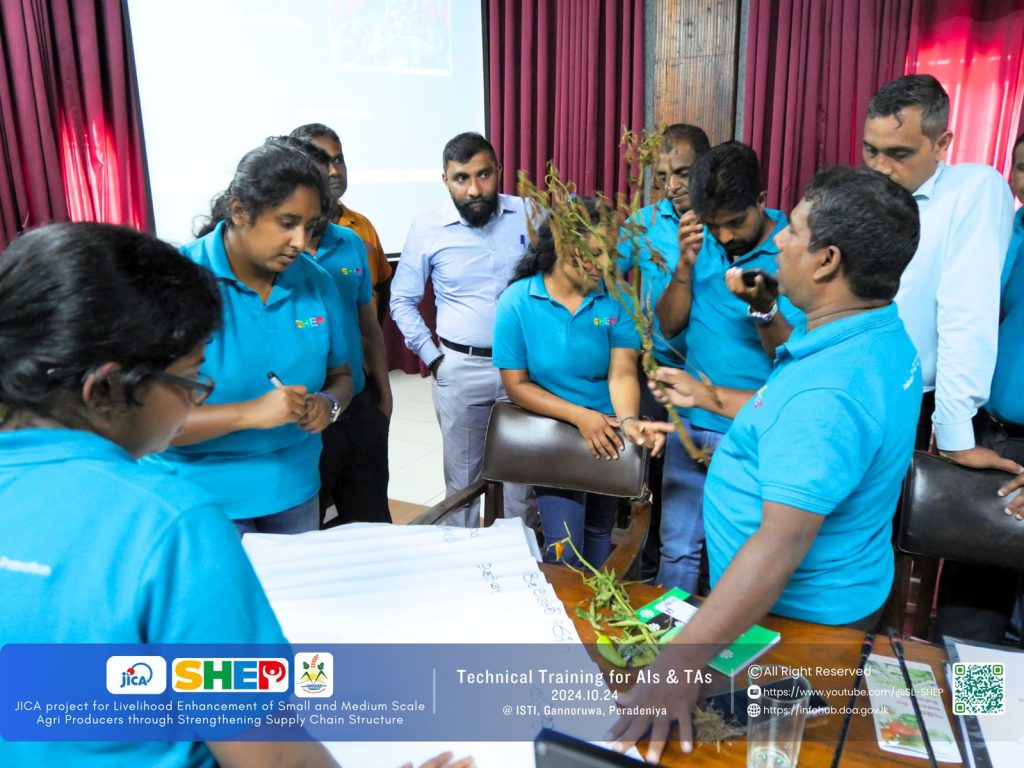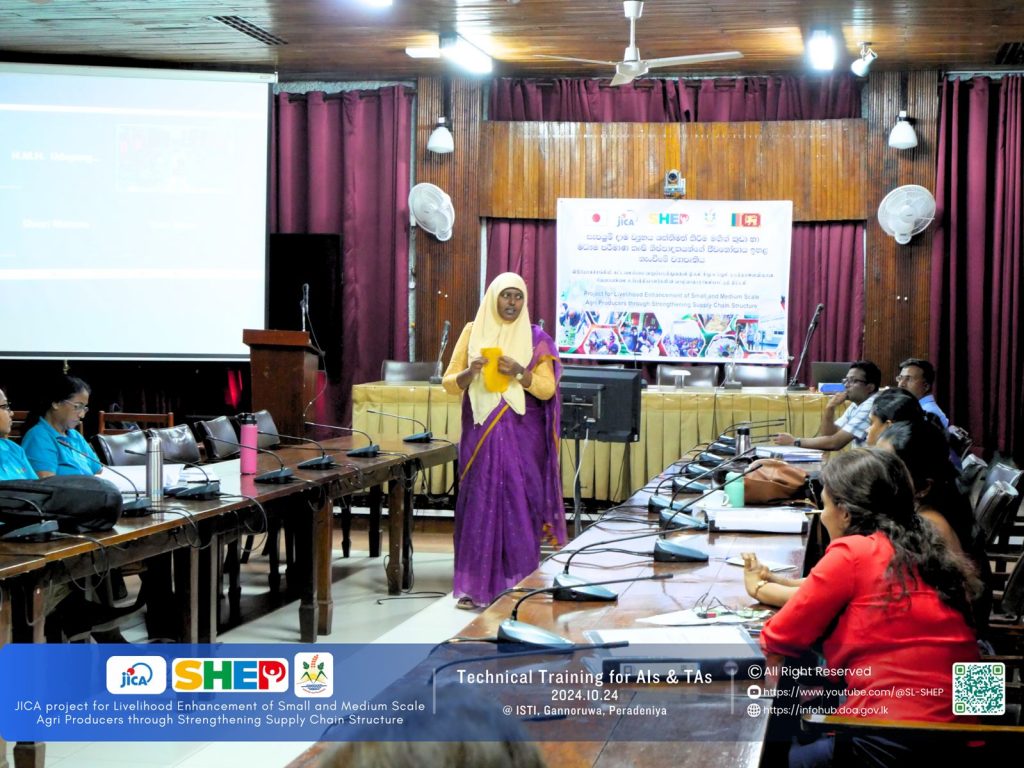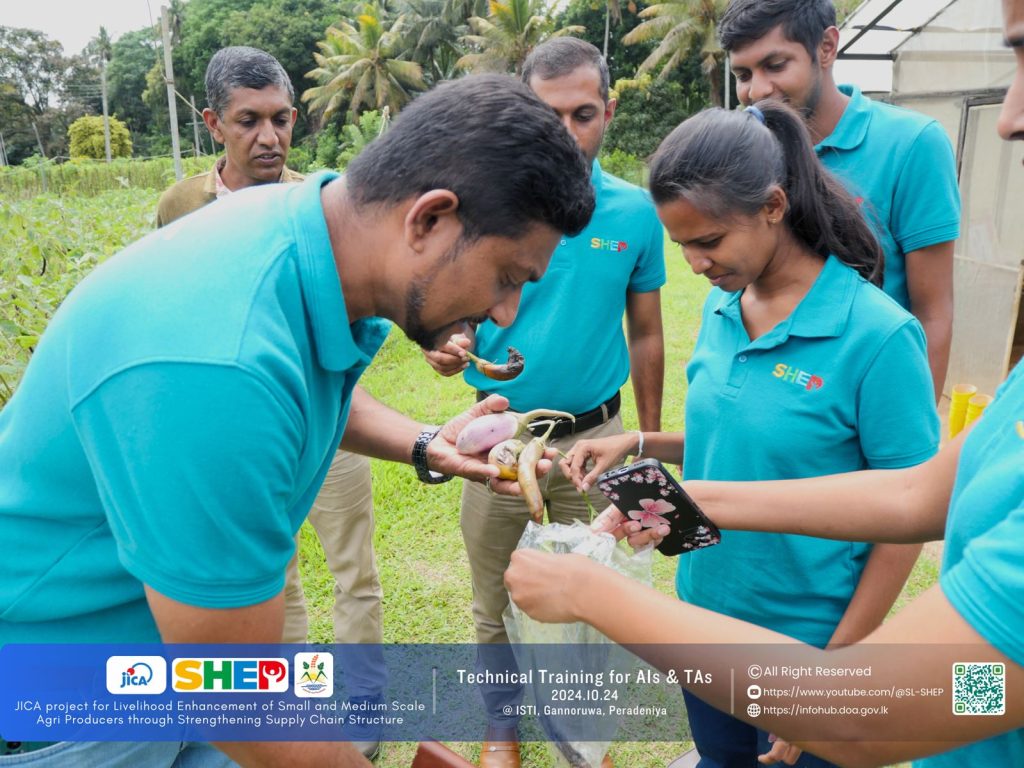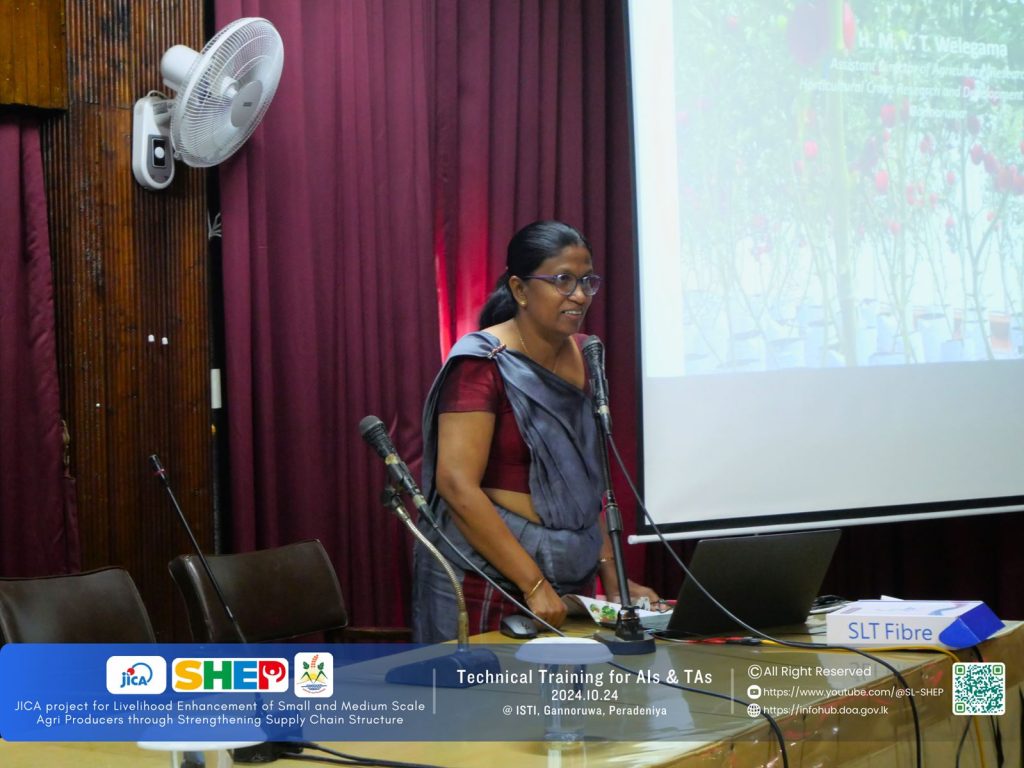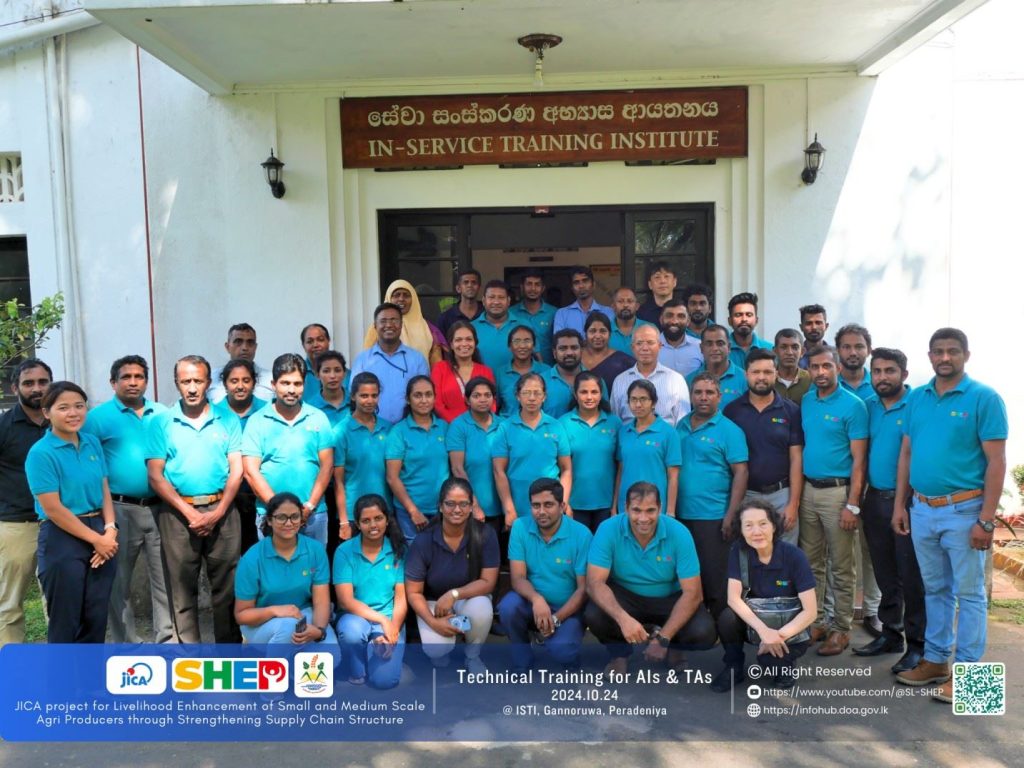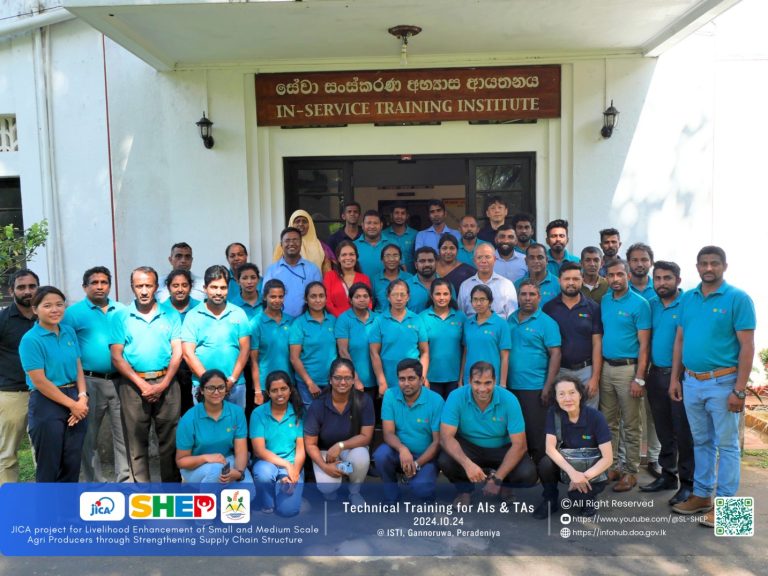In the fourth step of the SHEP (Smallholder Horticulture Empowerment and Promotion) approach, Agricultural Instructors (AIs) and Technical Assistants (TAs) provide series of Technical Trainings to the target farmers.
As the second in-field training they are going to conduct training on effective pest and disease management strategies for targeted crops, as scheduled in the third step. We believe that AIs and TAs must possess up-to-date, comprehensive knowledge and skills to deliver impactful training. The SHEP project organized a dedicated technical training program to fill the knowledge gap of AIs and TAs from five target districts at the In-Service Training Institute (ISTI) in Gannoruwa on 24th October 2024.
The training session, led by scientists from the Horticultural Research and Development Institute (HORDI), Field Crops Research and Development Institute (FCRDI), and Regional Agricultural Research and Development Center (RARDC)- Bandarawela, combined lectures with practical sessions focused on agronomic practices and pest and disease management for key crops; chilli, tomato, brinjal, and beans as these crops are highly susceptible to pest and disease challenges that affect yield both qualitatively and quantitatively.
Simultaneously, Ms. Yoko Nagata, the horticulture crop production expert from the JICA SHEP & SSC Project, emphasized the critical importance of field hygiene as a fundamental method for disease prevention and management.
During the program, AIs, TAs, and researchers had the opportunity to share field-level experiences, problems and update each other with the latest knowledge. This initiative marks another significant step towards enhancing the livelihoods of small and medium-scale farmers by increasing yield both qualitatively and quantitatively.
